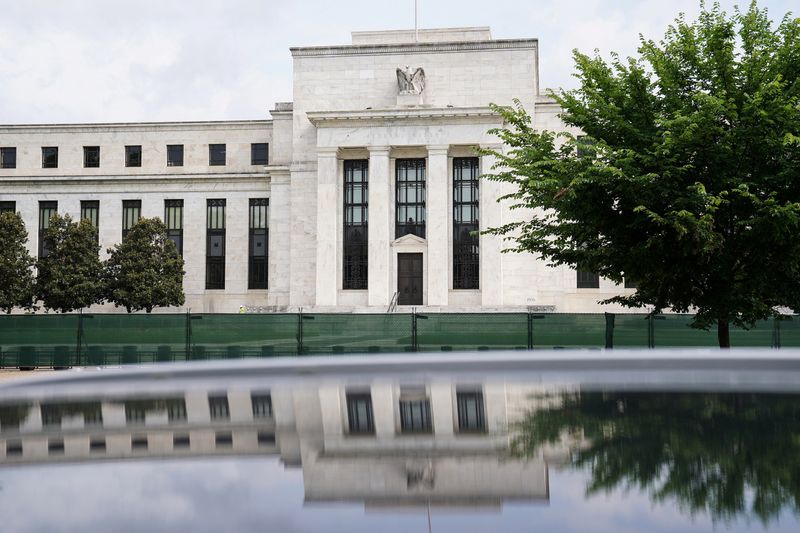Investing.com – Federal Reserve policymakers continued to back the central bank’s current wait and see approach amid worries the disinflation process could take longer than previously expected, according to the minutes of the Federal Reserve’s Apr. 30-May. 1 meeting released Wednesday.
Participants noted "recent data had not increased their confidence in progress toward 2 percent and, accordingly, had suggested that the disinflation process would likely take longer than previously thought," the minutes showed.
At the conclusion of its previous meeting on May. 1, the Federal Open Market Committee, or FOMC, kept its benchmark rate in a range of 5.25% to 5.5%.
The central bank has kept rates unchanged since July last year, during which the core consumption personal expenditure, or CPE, the central bank’s preferred inflation gauge, has slowed to from 4.1% to the current 2.8% pace. The next set of PCE data is due May 31.
But the progress on inflation has stalled since the turn of the year, forcing Fed members including chairman Jerome Powell to concede that the data had dented the confidence needed to discuss rate cuts.
"Participants discussed maintaining the current restrictive policy stance for longer should inflation not show signs of moving sustainably toward 2 percent or reducing policy restraint in the event of an unexpected weakening in labor market conditions," the minutes showed.
Against the backdrop of sticky inflation, a "number of participants" expressed uncertainty on whether rates are high enough to rein in slow economic growth and inflation.
Following the meeting, however, confidence that disinflation has resumed was boosted by the latest consumer price index data showing that inflation slowed more than expected in April, ending the streak of upside surprises seen since January.
Renewed confidence in the disinflation trend and slew of comments from Fed officials downplaying the need for a rate hike, put a cap Treasury yields, with the rate sensitive 2-year Treasury falling back below 5%, while the 10-year also retreating from its recent peak as September rate cut bets firmed.
The odds of September cut continue to hover around 50%, according to Investing.com’s Fed Rate Monitor Tool.
Fed officials welcomed the data in recent weeks, though echoed that one data point doesn’t make a trend.
